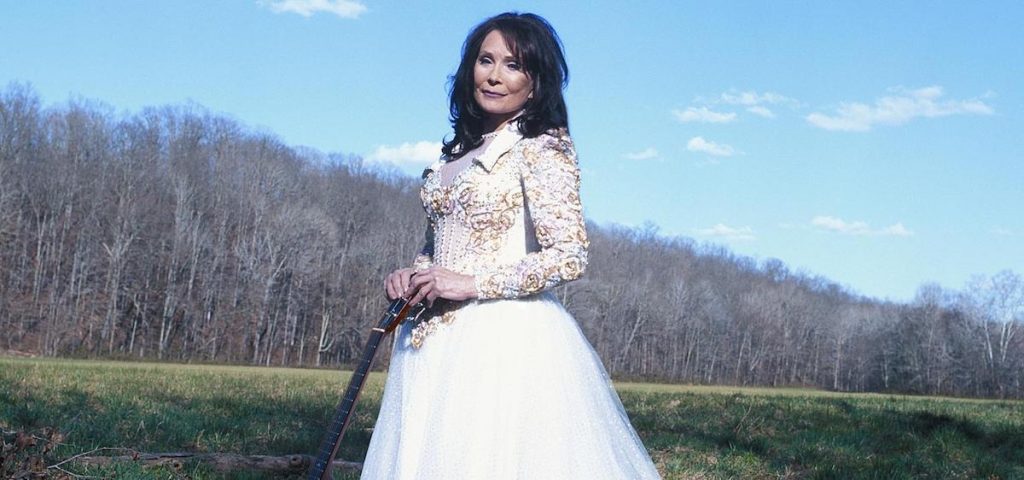Culture
Reflecting On the Importance and Impact of Loretta Lynn with Angela Opell Adkins
By: Emily Votaw
Posted on:
Throughout the ‘60s and ‘70s, the country music industry was desperately trying to produce songs that would appeal to a wider demographic than the chiefly Appalachian and southern working class that the genre had sprung from. As it would turn out, one of the genre’s most prolific hitmakers of all time, Loretta Lynn, would actually dig deeper into her Appalachian roots rather than succumb to the pressure to erase them from her image, going on to produce a whopping 24 number one hits and 11 number one albums throughout her six-decade career.
On Thursday, March 4 at 8 p.m. ET, WOUB-TV will broadcast Loretta Lynn: My Story In My Words, a documentary that traces Lynn’s life from her birth in Butcher Hollow, KY to her rise as a country music icon.

“The kind of country music we associate with Loretta Lynn, especially very early on, is honky-tonk, which is associated with the displacement and migration of people from the hills and hollers of Appalachia to places to where jobs were easier to find in the post World War II period,” said Angela Opell Adkins, an Ohio University School of Interdisciplinary Arts Ph.D. candidate specializing in clarinet and ethnomusicological studies focusing on critical re-examination of country music. “Honky-tonk was music for the displaced Appalachian and Southern working class. It was for coming together on Friday and Saturday nights to let off steam; to sort of remind themselves where they came from and to drink, to dance.”
Adkins said Loretta Lynn knew the experience of that particular population because she was so thoroughly a part it herself.
“While Loretta Lynn was born in Kentucky, she was in Washington State by the time she was 14 — and that story is really characteristic of what was going on for a lot of people of the poor working class from Appalachia and other places in the South. They were moving out of their home territories and going to places like Detroit and Columbus,” said Adkins. “And, you know, in those contexts, a lot of the time, it was not to your advantage to really read as a ‘hillbilly.’ to appear to be a hillbilly. So a lot of the country music at the time wanted to kind of walk this tightrope between reminding people where they came from and reflecting this rural, Appalachian identity without being so narrow and kind of ‘authentic’ that it scared away people who perhaps were more suburban, or who didn’t have Appalachian roots. In contrast, Loretta Lynn, rather than trying to kind of soften the edges of her Appalachia and working class identity, she really doubled down on it.”
A part of that Appalachian and working class identity were the challenges women endured in that particular patriarchal societal context; which Loretta Lynn famously wove into her songs. So much so, in fact, that some radio stations refused to play her music.
“What we have to remember is that the people who were making these decisions at the radio stations were men. Loretta Lynn has been really explicit in saying that she wrote songs about women for women, and unfortunately the audience — which she was really inspired by and that she was really hoping to reach — they didn’t have the power to determine what was being played on radio stations in the ‘60s and ‘70s,” said Adkins.
Even after Loretta Lynn had achieved objective country music stardom, she, alongside many other country legends, received almost no support from the industry they had generated so much profit for. Adkins told me how Loretta Lynn experienced an enormous surge of popularity some five decades into her career largely thanks to exactly the sort of fans that the country music industry executives of the ‘60s and ‘70s had been so concerned about her authenticity alienating.
“In the ‘80s and ‘90s, people like Loretta Lynn, Dolly Parton, and Johnny Cash were all considered to be living country legends, but it wasn’t like country music radio was playing any of their new music – they had kind of been put out to pasture,” said Adkins. “I think the reason that artists like Loretta Lynn, Johnny Cash, and Dolly Parton have the sort of profile that they have for us now is really because people like Jack White with Loretta Lynn, like Rick Rubin with Johnny Cash – these people from this alternative space – saying ‘you know, isn’t this a shame that these living legends are having to play at county fairs and they’re not selling any records?’ So in consideration of the Renaissance of our country legends, there’s no thanks due to the country music establishment.”

